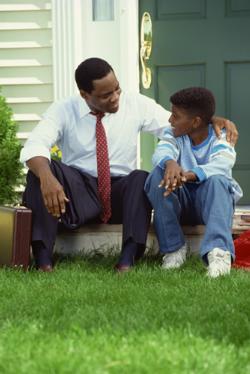Parent Power

Six-nine- year- olds: Remind them that behavior is a choice. They know that behavior has consequences. If your child is worried that he will lose control, suggest that he/she imagine a stop sign,or simply walk away and relax.
10 to 12 -year-olds: realize that feelings have causes. It can help them if they stop to consider, "Why am I upset?" Is this situation as bad as it seems?" Explain that often, the answer is no. Advise them to think before they act.
Older children: As your children get older, weigh the pros and cons of decisions together. Hold him/her responsible when they lose control. Compliment them when they do not! Meanwhile, set good examples. When you lose your temper, apologize and change for the better.
Middle school years: When your children reach this age he/she should have a better grasp on their emotions. When they lose control, have them analyze the situation to see what bothers them and why. This gives them a chance to consider their choices before they react. If the situation happens at home, some time alone might help.
Junior High/High school: By this age your children should be able to control his/her actions. A gentle reminder about consequences for inappropriate actions should be all that is needed. As a parent, you may need to evaluate the problem before offering a response. This will result in a more positive outcome.
